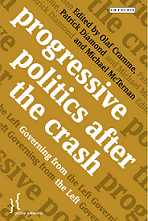Şimşek, M., (2013), “The wisdom of crisis prevention”, Project Syndicate, 17 September. Regardless of how differently governments may formulate policy, ensuring financial stability is their common responsibility. This calls for real and effective policy coordination and an overarching macro-prudential governance framework at both the domestic and international levels. The simple truth is that the cost of preventing financial crises is much lower than the costs imposed by them after they …Read More
Has Capitalism Revived/Survived?
Posner, R., (2013), “Has Capitalism Revived/Survived?”, The Becker-Posner Blog, 16 September. Capitalism is the economic system in which the assets used to produce goods and services are privately owned, and the owners determine the price at which to sell those goods and services. Private markets, because they organize and direct production and consumption, are the basic institutions of a capitalist system. Government regulation of markets is (in capitalist theory) limited …Read More
Ignore the doomsayers: Europe is being fixed
Schäuble, W., (2013), “Ignore the doomsayers: Europe is being fixed”, Financial Times, 16 September. Τhe world should rejoice at the positive economic signals the eurozone is sending almost continuously these days. While the crisis continues to reverberate, the eurozone is clearly on the mend both structurally and cyclically. What is happening turns out to be pretty much what the proponents of Europe’s cool-headed crisis management predicted. The fiscal and structural …Read More
Ordoliberalism and Germany’s approach to the euro crisis
Cohen-Setton, J., (2013), “Ordoliberalism and Germany’s approach to the euro crisis”, Bruegel , 16 September. The debate over the legacy of ordoliberal ideas in Germany’s approach to the euro crisis has gained renewed interests ahead of the federal election, which will be held on 22 September 2013 to determine the members of the 18th Bundestag. Beyond the question of whether a change in government would dramatically change the country’s approach …Read More
Developing the social dimension of a deep and genuine Economic and Monetary Union
László A., (2013), “Developing the social dimension of a deep and genuine Economic and Monetary Union”, European Policy Centre, Policy Brief, 13 September. Introducing systematic monitoring of key employment and social challenges and strengthening employment and social policy coordination would boost the social dimension of Economic and Monetary Union (EMU). Socio-economic divergence undermines the functioning of currency union, with employment and social crises in individual countries spilling over to others. …Read More
How to make Europe’s incipient recovery durable: End policy uncertainty
Buti, M. and Padoan, P.C., (2013), “How to make Europe’s incipient recovery durable: End policy uncertainty”, www.voxeu.org, 12 September. The Eurozone is recovering but the revival is fragile – ringed by downside risks. This column argues that three steps – reducing policy uncertainty, repairing the financial system, and creating new investment opportunities – are essential. They could switch the negative confidence-growth feedback loop into a positive one, thus paving the …Read More
End to Crisis ‘Within Sight’ Says Barroso
Norman, L., (2013), “End to Crisis ‘Within Sight’ Says Barroso”, The Wall Street Journal, The Euro Crisis Blog, 11 September. Europe must move ahead on its banking union project to help the region exit an economic and debt crisis whose end is now “within sight,” the European Union’s top official said Wednesday. In his annual address to the European Parliament, European Commission President José Manuel Barroso said the region has “started …Read More
The way out of the Cyprus economic crisis
Theophanous, A., (2013), “The way out of the Cyprus economic crisis”, Notre Europe – Jacques Delors Institute, Policy Paper 96, September. This policy paper presents the current situation in Cyprus, and proposes two scenarii of a way out of the Cyprus economic crisis: a reframing of the current Troika’s philosophy, or an eventual temporary exit from the euro area. After having analysed the current economic, political and social situation of …Read More
Elections to the European Parliament and the trouble with vox populi
Piedrafita, S., (2013), “Elections to the European Parliament and the trouble with vox populi”, European Policy Institutes Network, No.22, 22 August. Declining support for the European Union in many member states is causing some disquiet about the possibility of an even lower voter turnout in the upcoming European Parliament (EP) elections to be held next May. This discontent might well be exploited by populist anti-European parties and boost protest-vote participation, …Read More
Progressive Politics After the Crash: Governing from the Left
Cramme, O., Diamond, P. and McTernan, M. eds., (2013), Progressive Politics After the Crash: Governing from the Left, London: I.B. Tauris & Co Ltd. Those who hoped the collapse of financial markets would usher in the end of neoliberalism and rehabilitate support for traditional social democratic policies programmes have been disappointed. It is not only the irrationality of markets which is the focus of public discontent, but the inefficiency of …Read More





